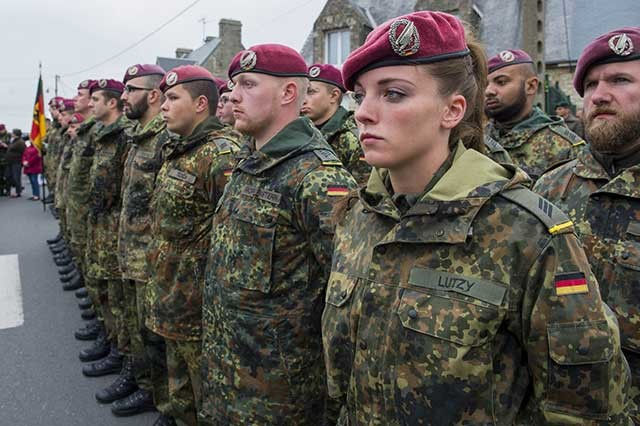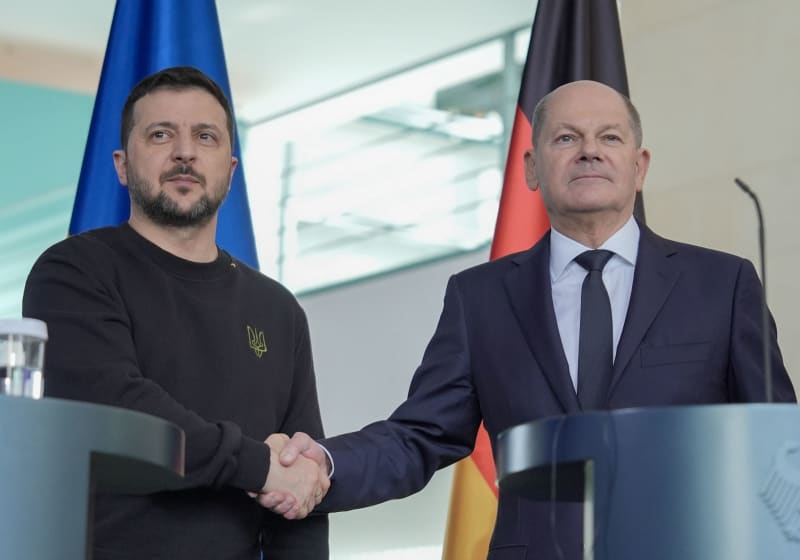Zeitenwende, Does the European Union have a future?
- Pablo Díaz Gayoso

- Mar 3, 2025
- 4 min read
Updated: Mar 24, 2025
On February 27, 2022, German Chancellor Olaf Scholz took the Bundestag podium and delivered what is to date his most internationally influential political speech. Zeitenwende, “change of times” in English. This change of times refers to the political moment that began after the Russian invasion of Ukraine on February 24, 2022 but as we will see in the following article it is something much broader.
The fall of the Berlin Wall and the collapse of the Soviet Union marked the end of another Era, that of competition between two superpowers with the capacity for mutual annihilation assured. The era that followed was marked by U.S. world hegemony and the development of unprecedented political projects such as the European Union. The EU not only expanded (horizontally) in number of member states but also initiated a process of political integration (vertically) that has given the organization the capacity to act autonomously with exclusive competences. For this to have been possible it has been necessary the downsizing of the defense machinery that was active throughout the Cold War in Europe and the reinvestment in other sectors more related to the improvement of human development..

Today we find ourselves with a threat of conventional war on Europe's doorstep, a threat that many decades ago was thought to have been eradicated (and in the minds of many, forever). Now the whole of Europe and the world is rearming at truly alarming speeds. The German case has been especially significant because of its historical past, as it has raised defense spending to more than 2% of GDP and created a special fund of 100 billion USD to rearm its army (Bundeswehr). However, Germany's abandonment of historical pacifism has not been limited to within its borders, but it has also changed its policy of sending arms to countries in conflict. This has been a measure that has allowed Ukraine to resist the Russian advance for more than two years but at the same time is making it an active participant in the massacre in Gaza.
The geopolitical revival of Germany as a power has a direct influence on the direction the European Union is taking. The return of expansionist imperialism to the European continent clashes head-on with the founding spirit of the EU. Pandora's box has been opened and the dangerous path of betting security on military spending leads irremediably to a more insecure world. Linking the feeling of security to increased military spending generates in the other actors a legitimate concern for their own security that can only be solved by following the same path of rearmament.
The historic decade that began in 2022 has many elements to consider it already the most dangerous since the Cold War. For the European Union to survive the new challenges, it must become a geopolitical and sovereign actor. To this end, it is vital that it streamlines decision-making and has a free hand to act when necessary. “The EU is an economic giant, a political dwarf and a military worm” this phrase represents the situation quite well. Politically it remains an organization that coordinates 27 member states with their own needs and interests, which are defended in European decision-making bodies, even with the power of veto. The limitations created by the unanimity requirement mean that the ability to maneuver does not correspond to real power. For the EU to be a political actor on a par with its economic power, it must move towards political and military integration. European political decision-makers must find the formula for structuring a coherent foreign policy that will place us in a position of a serious and united political actor, especially in dealing with Russia, China and the United States. The same can be said in the military field. If we add up the military spending of all the EU countries we would find ourselves with a real superpower that would rival China for second place in the world, overtaking Russia by some distance. However, the configuration of European armies lacks coordination similar to that of other powers, which makes this expenditure largely ineffective.

The shock caused by the war in Ukraine and the COVID_19 crisis are two of the most serious crises of the last decades, but at the same time it is a unique opportunity to revitalize the European project. As Scholz said, we are facing a Zeitenwende, a historical turning point where the tectonic plates that configured the post-Cold War international architecture are moving. Faced with these far-reaching changes, the EU must be able to act with greater speed, efficiency and autonomy. In the drawer is the European army project, strategic autonomy and the integration of the Balkans into the European family. This June 9, it is not bold to say that the future of Europe and its ability to survive the Zeitenwende is at stake.










Comments